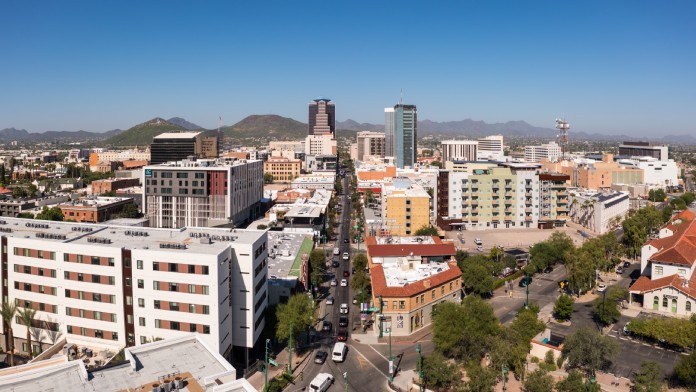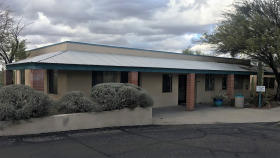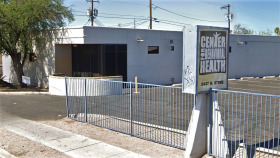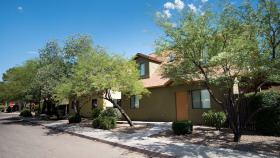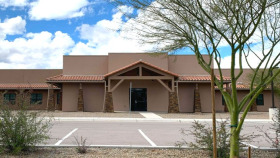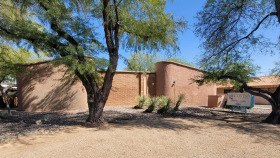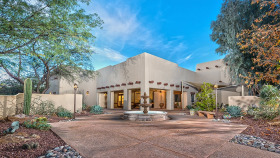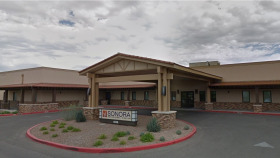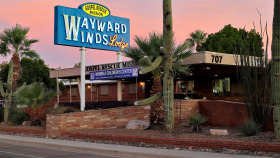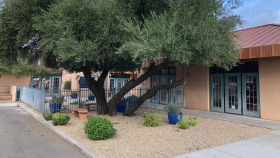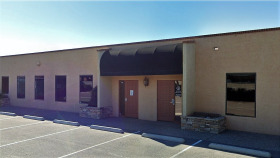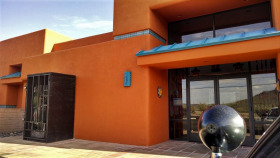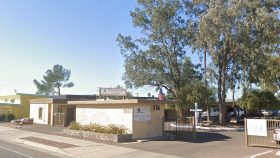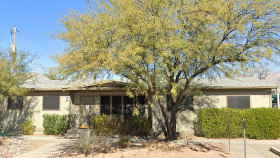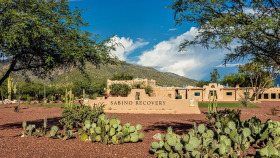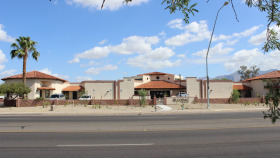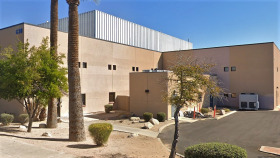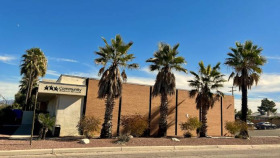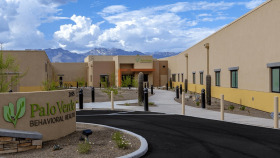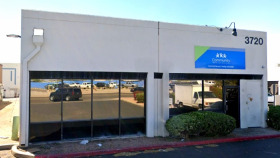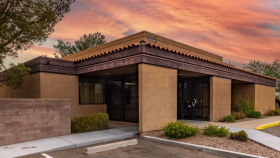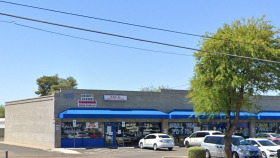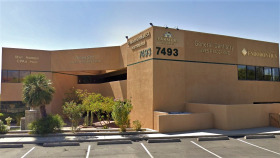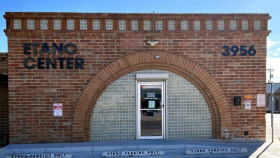Expert Insights
Tucson’s Pima County Health Department recently confirmed the city could be on pace to set another record for opioid overdose deaths. And much like many other cities around the nation, fentanyl is the driver of those overdose fatalities. Many other drugs that used to claim thousands of lives in the area – drugs like methamphetamine, cocaine and heroin – are still an issue, but fentanyl is by far the most widely abused. Why is that? Well, fentanyl is cheap…and the price just keeps going down. The more the price falls, the more widely available this deadly drug becomes.
~ Olivia Pennelle
How to Pay for Addiction Treatment in Tucson
In Tucson, 16 state-funded programs and groups receive the Substance Abuse and Mental Health Administration (SAMHSA) block grant to provide services to those without the funds to finance treatment.1 You can find resources and referrals by reaching out to your local social services programs or the rehab facilities directly.
If you have no access to private or publicly funded health insurance, there are still other options to consider. For example, friends and family may be able to help you come up with funds. You can also try crowdsourcing or fundraising online.
There are still several other ways to make rehab more affordable and ease the financial burden of treatment, including:
Choose a Program that Offers Payment Plans: A rehab payment plan splits up the cost of treatment into manageable portions you can pay after treatment, usually on a weekly, bi-weekly, or monthly basis. These plans include a repayment contract with any applicable interest rate. Ask your chosen rehab if this is an option to help pay for rehab in Tucson.
Apply for a Rehab Scholarship: A scholarship may be available as the rehab’s financial assistance to pay for part or all of your care. This option is generally reserved for people who need addiction support and who have no access to self-pay funding or state or private insurance. Call your desired rehab to ask if it offers rehab scholarships.
Find a Sliding-Scale Rehab Program: Sliding-scale programs calculate the fee for service based on your income. Program requirements may vary, but these calculations are typically based on federal poverty guidelines.
How Does Tucson Compare in Alcohol and Drug Use?
Tucson is the second largest city in Arizona, located about an hour’s drive north of the US-Mexico border. Being in close proximity to border, Mexican cartels consistently flood Arizona with opioids. In fact, in 2021, the U.S. Customs and Border Protection confirmed fentanyl was being trafficked more than heroin for the first time in U.S. history.16 Playing a pivotal role in the city’s fight against addiction, there are 76 accredited alcohol and drug rehabs in Tucson offering sliding scale, Medicare, Medicaid, or private insurance payment options.
Local emergency responders, emergency rooms, and other public health entities compile data from around the county to give an accurate snapshot of the area’s current public health status. These reports show that the community has a dire problem with substance abuse, particularly opioids and fentanyl.
Statistics of note include:2,3
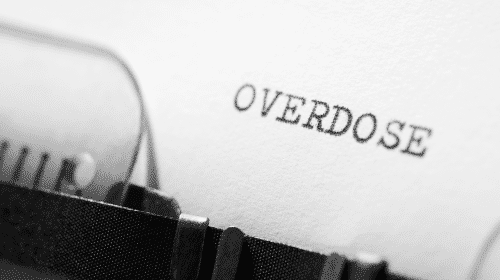
The rate of overdoses increased 34% between 2019 and 2020, with most attributed to fentanyl.
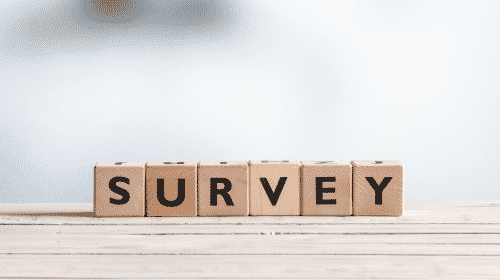
One in five adults reported binge drinking at least once in the past 30 days when surveyed
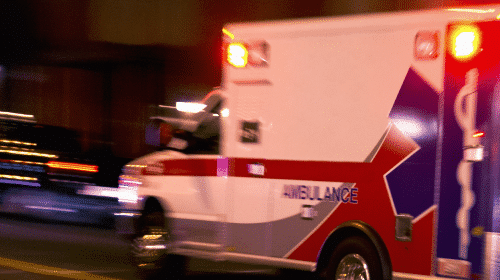
Overdose deaths in 2019 were most often caused by methamphetamine, fentanyl, and heroin.
Alcohol and Drug Laws in Arizona
Multiple laws and bills have been enacted in response to the opioid crisis and other substance abuse issues in Arizona.
Arizona Marchman’s Act: When a family member or loved one is suspected of having a life-threatening addiction, it is possible to forcibly commit the individual into a rehab program in Arizona under the Marchman’s Act.12 This controversial law states that if a person presents a threat to himself or herself, or to others; has a disability related to the substance use; or refuses to enter substance abuse treatment, a concerned party over age 18 may apply to have the person placed into a court-ordered rehab program.
Arizona Opioid Epidemic Act: This multi-bill act created a series of opioid use interventions. These include providing naloxone (Narcan) to first responders to prevent overdoses and limiting how much and how often opiates can be prescribed.13
Arizona Good Samaritan Overdose Prevention Law: Arizona enacted overdose prevention measures in the form of a Good Samaritan law as part of the Opioid Epidemic Act. This law encourages people to call 911 if they’re in the vicinity of an overdose without fear of prosecution for doing so.
A similar law, the Angel Initiative, allows drug users to turn themselves and any paraphernalia in at a police station to be admitted into rehab services without fear of being incarcerated for possession.13
Parents’ Rights in Arizona: No statutes dictate a minor over the age of 12 needs parental permission to undergo any medical treatment. However, a bill was passed that allows for minors to seek substance abuse treatment without parental consent if a doctor confirms the minor is under the influence of a narcotic.14
Arizona Family Medical Leave: Under the federal Family and Medical Leave Act (FMLA), Arizona companies with more than 50 employees must offer unpaid time off to any employee in a medical crisis, including the need for addiction treatment. Employers may not discriminate against employees who enter rehab and must provide them the same or a similar position when they return.15
Searching for “drug rehab(s) near me” or “alcohol rehab(s) near me” can be an overwhelming process. Get the help you need, today – contact
800-681-1058
(Who Answers?)
any time if you need help figuring out your next steps.
Choosing the Right Level of Care
Residents of Arizona can receive multiple levels of care for alcohol and drug addiction treatment. Those include:
Detox
Detox is often the first step of the recovery journey. It is generally provided in a supervised medical setting and involves safely and comfortably clearing your system of all drugs and alcohol. Once you’re substance-free, you’re able to transfer into an inpatient program in Tucson.
Residential or Inpatient
Residential or inpatient treatment is the most intensive treatment setting and involves 24/7 supervised care. Clients typically participate in individual and group therapy, but they may also receive medication and additional types of therapy.
Partial Hospitalization Programs (PHPs)
PHPs are the most intensive level of outpatient treatment, with several hours in an inpatient setting each day. Many people enter PHPs after finishing inpatient rehab or detox programs.
Intensive Outpatient Programs (IOPs)
IOPs are a more involved form of outpatient treatment than standard outpatient, requiring you to attend a few hours of therapy at the facility several days a week.
Standard Outpatient
Standard outpatient treatment requires the least time commitment to participate, usually requiring only a few hours of meetings per week in individual therapy or support groups. This type of rehab is perfect for someone in long-term recovery who just needs ongoing counseling and life skills coaching to avoid relapsing.
Aftercare
Aftercare provides ongoing support once inpatient or outpatient treatment is completed. This care may include 12-step meetings, transitional housing, or therapy. It is a key component of relapse prevention.
Types of Alcohol and Drug Rehabs in Tucson
It might be beneficial to your recovery to participate in a program that’s specific to your demographic and values. A variety of treatment programs in the Tucson area cater to specific groups, including:
Holistic Treatment
Holistic rehab includes alternative medications and treatment aimed at helping your mind, body, and spirit recover from addiction. Therapies include yoga, acupuncture, Reiki therapy, art therapy, mindfulness, and much more.
Christian and Faith-Based
Christian and faith-based rehab programs include religion or spiritual components. Treatment includes participating in prayer groups, devotional time, meditation, mindfulness, and religious or philosophical discussions. Faith-based treatment is geared toward helping you accept the past, gain inner strength, and achieve long-term recovery.
Luxury Treatment
Luxury rehabs provide patients with a relaxing resort-like environment to jumpstart their addiction recovery. Every luxury treatment program is different but they typically provide upscale features, such as swimming pools, massage therapy, spa treatment, equine therapy, gourmet meals, and more.
Executive Treatment
Executive rehab allows you to continue working while getting the alcohol or drug treatment you need. Many inpatient executive rehab facilities have upscale amenities, including private office space, access to computers and Internet, and the ability to travel for business. Outpatient executive rehab specializes in treating working professionals and provides after-work sessions.
Dual Diagnosis Treatment
Mental health disorders and addiction often co-occur due to trauma or stress. Mental health disorders can lead to substance use disorder and vice versa, addiction to drugs or misuse of alcohol can lead to mental health disorders. In order to recover, both conditions must be treated at the same time. Only specialized treatment facilities offer dual diagnosis treatment.
Common Co-Occurring Disorders Treated in Tucson Rehab Centers
- Depression and Addiction
 More than 30% of people with major depression have co-occurring alcohol and/or substance use disorder.5 You may drink alcohol to escape your symptoms of depression. Conversely, depressants like alcohol can cause dysphoric moods such as grief or sadness.
More than 30% of people with major depression have co-occurring alcohol and/or substance use disorder.5 You may drink alcohol to escape your symptoms of depression. Conversely, depressants like alcohol can cause dysphoric moods such as grief or sadness. - Anxiety and Addiction
An estimated 19% of people suffer from generalized anxiety disorder.6 Your healthcare provider may have prescribed benzodiazepines (a.k.a., benzos such as Valium, Ativan, or Klonopin) to treat anxiety. Unfortunately, benzos are highly addictive. If you have anxiety and self-medicate with benzos or alcohol, seek treatment at a dual-diagnosis rehab. - PTSD and Addiction
Post-traumatic stress disorder (PTSD) can affect anyone who is personally traumatized or witnesses someone else being traumatized. Military personnel, veterans, and first responders risk developing PTSD. And with PTSD comes a higher risk of substance use disorder. A nationwide study showed that 46% of people with full PTSD have substance use disorder, mainly with alcohol.7 The rate of alcohol or substance use disorder among US combat military veterans returning from Afghanistan or Iraq was even higher at 64%.8 - Bipolar Disorder and Addiction
In the U.S., 4.4% of people experience bipolar disorder at some time in their lives.9 While affected, they have dramatic mood and energy swings that affect their ability to concentrate and function in day-to-day activities. More than 40% of people with bipolar disorder use alcohol or drugs to help with mood swings.10 If you have bipolar disorder and substance use disorder, medication-assisted treatment (MAT) and behavioral therapies can help you make healthier choices. Group therapy provides support, camaraderie, and accountability. - Personality Disorders and Addiction
Anywhere from 35% to 73% of people with alcohol or drug addiction have a personality disorder.11 People with antisocial personality disorder may lean toward cocaine use. Socially anxious people with an avoidant personality disorder may turn to alcohol use.
Types of Addiction Therapy Used in Rehab
Rehabs all vary in their practices, but they tend to provide a combination of evidence-based therapies that can help you address addictive behaviors and thoughts.
Cognitive Behavioral Therapy
Cognitive behavioral therapy (CBT) focuses on helping patients identify their own problematic thought patterns and actions, and to increase their understanding of how these behaviors impact their substance use. CBT is based on the idea that psychological problems are often rooted in cognitive distortions, or faulty ways of thinking.
Dialectical Behavior Therapy
Dialectical behavioral therapy is a form of psychotherapy intended to help people change problematic thoughts and behaviors by learning to manage and change negative emotions, rather than trying to escape from them.
Motivational Enhancement Therapy
Motivational enhancement therapy (MET) is a form of therapy that helps individuals strengthen their internal motivation and create a plan for change. Individuals with SUDs are often ambivalent about changing their behaviors, even when they are aware of the damage caused by their addiction. MET has been used to improve engagement with treatment programs and reduce problematic behaviors.
Contingency Management
Contingency management uses positive reinforcement to help build positive habits. This approach uses strategic rewards or incentives to encourage behaviors such as attending treatment sessions and engaging in recovery-focused activities.
Group Therapy
Group therapy can be highly beneficial to individuals in a drug or alcohol treatment program. Group counseling provides a safe environment in which patients can build their interpersonal communication skills and learn from others who have been in their situation.
Family Therapy
Family therapy is integral to many rehab programs. Research shows that when combined with individual counseling, family therapy can help reduce stress, improve mental health conditions, and help prevent relapse.12
Should You Travel to Tucson for Rehab?
Arizona is famous for its hot, arid climate. Many people claim that the dry heat is great for their health, helping clear the lungs and keeping them comfortable year-round. If you’re considering a trip to the Copper State, you wouldn’t be alone—more than 1 million people visit every year.11
Some popular attractions around Tucson include golfing, shopping, hiking, stargazing at places like the Colossal Cave Mountain Park, and horseback riding through the desert and canyons. When considering moving to attend a drug or alcohol rehab in Tucson, consider the following questions:
- Do you have friends or family in the area to help you through recovery?
- Does your insurance cover the cost of treatment at the center you’re considering?
- What will your out-of-pocket costs be, including the cost of travel and accommodations, if you choose a drug rehab in Tucson?
- Would a change of scenery and a fresh start be beneficial to your recovery?
If you’re tempted by Tucson’s beautiful scenery, easy access to the Saguaro National Park and the Sonoran desert, and year-round sunny weather, look into the neighborhoods of Tucson as well as the laws and regulations in the area to see if a Tucson alcohol rehab program would be a good fit for you.
Tucson Neighborhoods to Consider for Addiction Treatment
 It can be difficult to choose the best place to stay while seeking drug rehab in Tucson, Arizona. There are several great neighborhoods.
It can be difficult to choose the best place to stay while seeking drug rehab in Tucson, Arizona. There are several great neighborhoods.
- The Sam Hughes area by the University of Arizona is an ideal spot for students. The area is home to many dining establishments, cycling paths, and natural spaces.
- Several rehabs are located in Hedrick Acres and Balboa Heights, neighboring communities in the northern part of Tucson. Both feature shopping centers and restaurants. This might be a good candidate for a location if your focus is convenience.
- Another highly esteemed area is the Civano neighborhood, named a must-see in the area for its brightly colored homes, its plethora of paved and dirt bike paths, and its beautiful mountain views. This place has a community garden and the Fantasy Island Mountain Bike Park for outdoor enthusiasts.
Wherever you choose to attend drug rehab in Tucson, you’ll find quality facilities that can help.
Resources
- Substance Abuse and Mental Health Services. (2022). Treatment Locator Map.
- Pima County Data and Reporting. (2019). Pima County Overdose Fatality Review Annual Report 2019.
- Pima County Health Department. (2021). 2021 Pima County Community Health Needs Assessment Fact Sheet.
- National Institute on Drug Abuse. (2022). How long does drug addiction treatment usually last?
- National Library of Medicine. (2018). Dual Diagnosis in Depression: Treatment Recommendations.
- National Institute on Drug Abuse. (2010). Comorbidity: Addiction and Other Mental Illnesses.
- U.S. Department of Veterans Affairs. (2022). Treatment of Co-Occurring PTSD and Substance Use Disorder in VA.
- National Institute of Health. (2020). Traumatic Events in Dual Disorders: Prevalence and Clinical Characteristics.
- National Library of Medicine. (2017). Bipolar disorder and substance use disorders.
- National Library of Medicine. (2018). Comorbidity of Personality Disorder among Substance Use Disorder Patients: A Narrative Review.
- Tucson Conventions and Visitors Bureau. (2022). Research and Data.
- National Alliance on Mental Illness. (2022). Involuntary Treatment Process.
- Arizona Office of the Governor. (2018). Arizona Opioid Epidemic Act.
- Arizona State Legislature. (2022). 44-133.01. The capacity of a minor to consent to treatment for use of a dangerous drug or narcotic.
- U.S. Department of Labor. (2022). Family and Medical Leave Act.
- U.S. Customs and Border Protection. (2022). Drug Seizure Statistics FY2021

